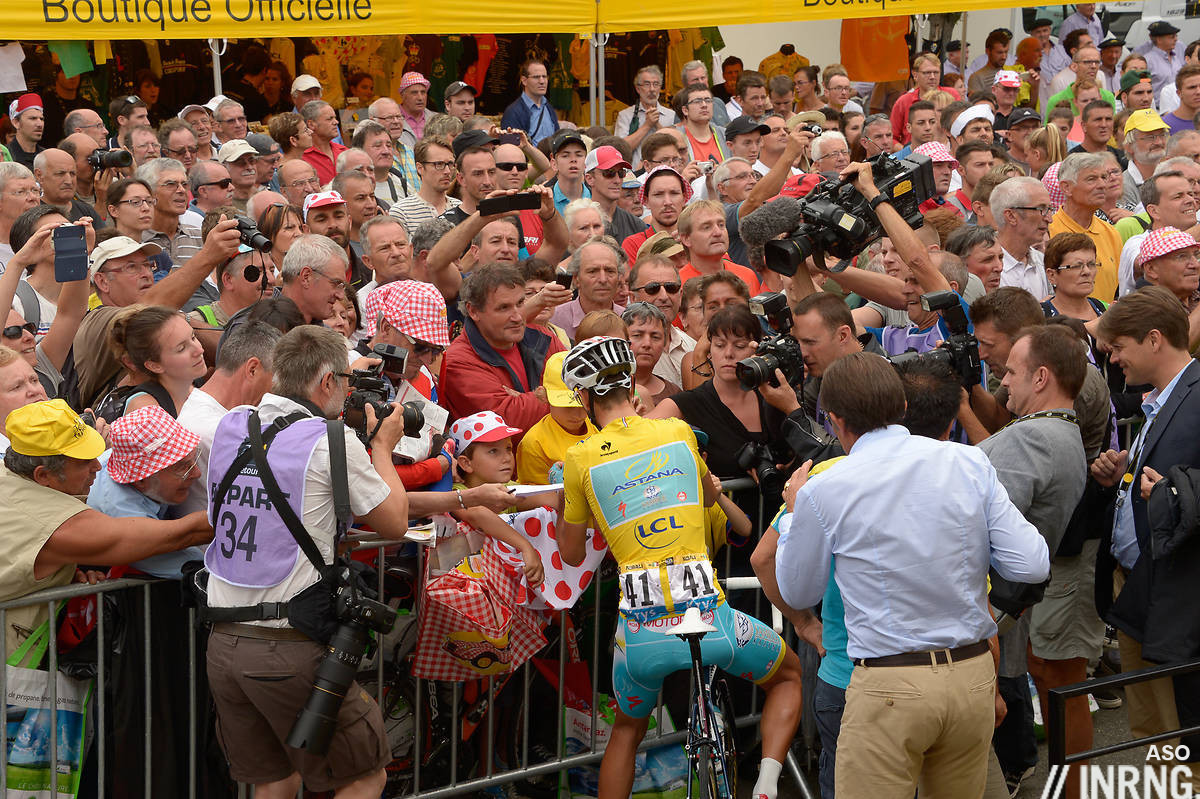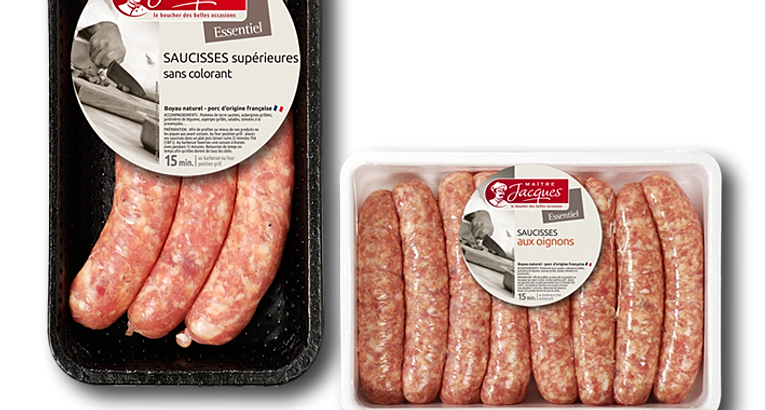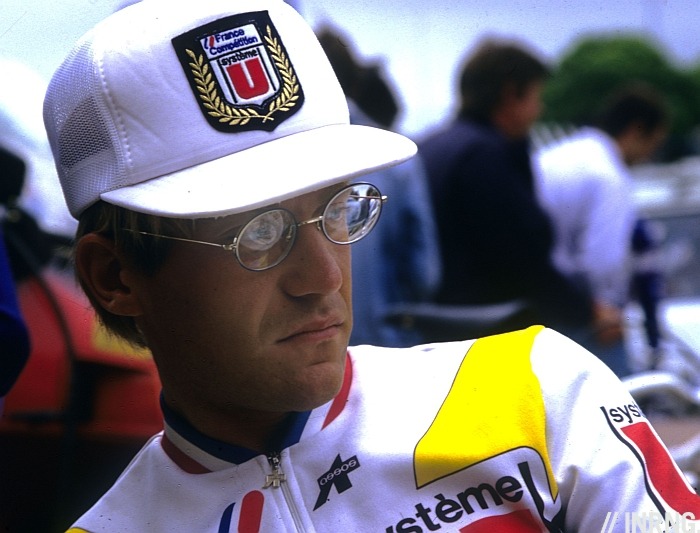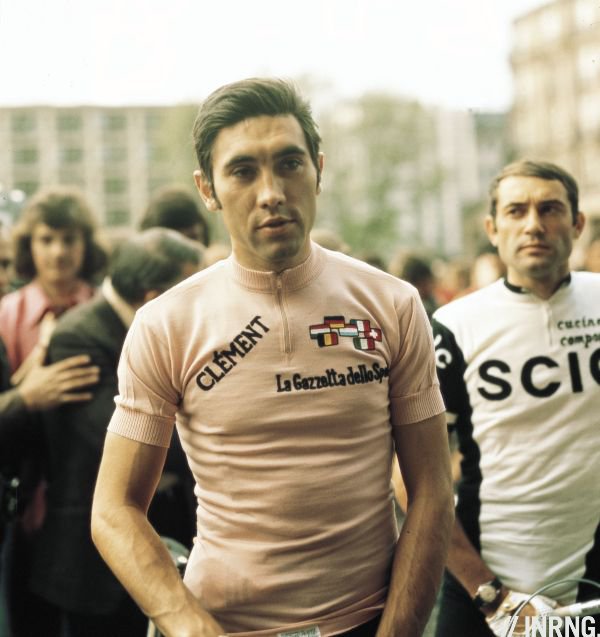
The Shark of the Straits. If you followed the Tour de France you’ll have heard or read about Vincenzo Nibali’s nickname, perhaps to the point of exhaustion at the repetition.
Such nicknames have a long tradition, they bring a touch of character and caricature as well as a sense of place.
First Nibali’s name explained. He’s from Messina in Sicily, a coastal city that gives its name to the Strait of Messina, Stretto di Messina, the narrow channel of sea that separates Sicily from the Italian mainland. The waters do include sharks including the great white shark. Nibali got the name because of his origins but also because of the way he races, “always on the attack” says his website.
Such names are a rarity. Jean-Christophe Péraud doesn’t have a nickname beyond “Jicé”, short for J-C when he could be “The Engineer from Lyon” and there’s nothing for Thibaut Pinot so far.
These names hark back to the past and a the era before TV coverage. Journalists needed to craft characters for their columnar chronicles. Some were obvious, a village butcher who turned out to be handy on a bike became “The Butcher of Amiens”. French newspaper Le Monde had a piece on famous riders from the past and their names the other day. It cited Philippe Thys as the first example, the Belgian won the Tour three times and was nicknamed “The Basset”. He sat so low on the bike he looked like the breed of dog with short legs.
The Eagle of Toledo has to be the best name ever, it’s poetic, predatory and evocative and all with a sense of place. Federico Bahamontes soared in the mountains, hence the Eagle suggests and obviously he was from Toledo. Cycling fans might know little about Toledo in central Spain but many know it has an eagle. Fellow climber Charly Gaul was “The Angel of the Mountains” while the Lion of Flanders has been applied to several, almost a crown passed from one to another.

Five time Tour winner Jacques Anquetil was called “Maître Jacques” or Master Jacques, a term that implied respect and supremacy. Anquetil was also a stylist on the bike and off it, a dashing figure from a photogenic age. It’s since become a mini-meme on Twitter where OPQS manager Brian Holm describes cool and stylish things that Maître Jacques might approve of. However it’s also the name of a range of meat products in France.

Some names are plain wrong. Louison Bobet was called the Baker of Saint-Méen but he never worked as a baker, it was his father’s job. Laurent Fignon was Le Professeur but was never studious, instead wearing small glasses was enough to make him seem professorial. He was never Le Professeur de Paris either because if he was from the French capital, he was from a sleepy suburb. Bernard Hinault’s “badger” nickname is awkward, once a term of affection it was then spun as a story of the stocky animal that fights hard when cornered but the mere act of having to explain this ruins the term.

A lot of these names were given by journalists but not all of them. As Daniel Friebe explains in Eddy Merckx, The Cannibal, the Belgian champion’s nickname was not the invention of a writer or broadcaster, nor even a rival eaten alive during a race… it came from a little girl.
A shark, a Lion of Flanders or an Eagle sits at the top of the food chain while the Badger’s half hidden, half cute. Multiple world champion Paolo Bettini was Il Grillo, the cricket because if he was small he had a big jump. The insect comparison isn’t too flattering and there have been some more modest names over the years, especially for the climbers because of their small size. Michael Rasmussen was The Chicken. Climber Andrea Noe was so thin some called him The Ghost. Luis Herrera was called Jardinerito, the Little Gardener. Domenico Pozzovivo is La Pulce di Pollicoro, the Flea of Pollicoro while Robert Millar was once labelled The Maggot although fortunately the name never stuck.
Others embrace the nicknames, Alberto Contador’s El Pistolero label has been branded by his management and he signs off a race victory with fake pistol shot. Joaquim Rodriguez likes his Purito nickname too.
Was it better in the past?
Froomey, Jicé and Gerro. The current trend of matey abbreviations is lamentable. These are names from the team bus and the echelon, race radio call signs that are abbreviated so they can be said often or quickly. It’s the opposite of the more poetic terms, for example L’Equipe briefly labelled Bradley Wiggins as The Heron of Kilburn in reference to his long legs – a term that’s been used before, in the 1960s the same paper likened Tour winner Roger Pingeon to a migrating heron for his rangy limbs. He was also called “Big Stork” for the same look as well as Le Plombier, the Plumber, because of his training. Pingeon’s variety of nicknames is revealing because it shows how a rider could have several names during his career and it’s only with time that one label sticks. Taken Fausto Coppi, also called Airone, Heron but in time Il Campionissimo won out.
As we see with Nibali the old nicknames aren’t from a bygone era. André Greipel is The Gorilla, sometimes The Gorilla of Rostock and there are plenty of others in the peloton, think the Manx Missile or the Condor of Varsseveld. Soaring birds of prey are a popular term, José Rujano’s retirement freed up the name El Condor for Nairo Quintana almost in the way a retiring football player surrenders the number on their shirt. Bjarne Riis was the Eagle of Herning and it became a brand, the eagle motif has appeared on the team jerseys of Saxo Bank since the Dane took up management.
A sense of place
Place can be used even when there’s no nickname. Regional association can invoke terroir, like cheese or wine, the rider reflects their origins. Gilberto Simoni grew up in the shadow of the Dolomites which lets us explain his climbing prowess and mule-like stubbornness. Ellen van Dijk grew up on eijer and against crosswinds which explains her power. Lance Armstrong’s brash ways were explained by the Texan tag. Every Colombian is built for a high mountain pass. By now you see how these associations cross from labels to lazy stereotypes. A lot of this is poetic baloney, a rider is the product of their inherited DNA rather than their region. But such pickiness doesn’t help with story-telling, especially in past eras when newspapers were practically the only way to follow the sport and characters had to be introduced to the public in the same way a writer inserts them into a novel.
Some nicknames vanish. The French media have stopped called Chris Froome le Kenyan blanc, “the White Kenyan” and never mind the nationality, it always seems awkward to say the least to identify a rider by their skin tone. Nobody calls Daniel Teklahaimanot “the black Eritrean” or labels Kévin Reza “the black Frenchman”. I’m also unsure about Tony Martin’s Der Panzerwagen nickname, yes it evokes unstoppable power but also the invasion vehicle of choice for the Nazis.
Conclusion
Once a device to bring character to a rider in early race reports the tradition of nicknames lives on and helps followers of the sport identify a rider and often indicates where they are from. We might spot a trend for abbreviations, for example Geraint Thomas as “G” rather than, say, the Panther of Cardiff. But this isn’t new, Laurent Fignon had Julot, better known as Pascal Jules and so on.
Only a few riders get these names and they’re often not by choice. Pozzovivo might not like being called a flea but he should be proud that he’s worthy of a nickname. Most riders struggle to get their own name printed and broadcast yet alone a nickname.

I am glad that you picked up the “panzerwagon” nickname for Tony Martin. It must make some uneasy for what the panzerwagon represents. I also feel it was manufactured by OPQS in order to sell some caps/shirts etc. I wonder if Tony really likes being referred to as “der panzerwagon”. It certainly caught my eye following his stage win in the le tour. I could do without that nickname.
AFAIK it means tank or armoured vehicle in German, so is in that sense legitimate and not necessarily referring to war or the aggressive use of the vehicles. We would also say that someone was a tank if they kept on rolling with speed/strength in the same way.
I guess the connotations are awkward , but he is German after all so it’s his prerogative to use his native language. There are probably all sorts of similar instances where inappropriate English words are used in a way which could be taken the wrong way. I don’t have any great examples to hand though!
Not knowing much on this, a panzerwagen is a tank but The Panzerwagen was a Czech model used by the Nazis. I’m only confused by the name, rather than outraged.
Long time lurker here…Military and strategic studies major in school. I just wanted to say that Panzerwagon just means tank. Even current Leopard 2 tanks, used by many armies but made in Germany, are called Panzerwagons. In my part of the english world, we often call someone a tank, if we want to mean, they are strong, powerful, and big…just like Tony Martin. Maybe there are some connotations in Europe but it’s just like call him the Sedan, or the Truck, in my opinion.
Thanks, helpful to have an expert.
I think the nazis used the term Panzerkampfwagen, battle tank. But in contrast to Kwiatkowski aka Flowerpower it’s rather stark.
If I remember correctly, Tony Martin has been called Panzerwagon at least since his time at HTC.
Don’t think der panzewagen is meant in a negative way. Foreign media always like to give us germans nicknames being concerned with weapons etc. (even though this has nothing to do with the present age). For example Lazio Rom fans are celebrating Miro Klose like no one else and they gave him the nickname ‘panzer tedesco’. That means german tank.
I thought I saw somewhere (maybe Cavendish’s biography or documentary about HTC at the tour) that the nickname (despite the word existing) was meant to combine ‘panzer’ and its tank connotations with Volkswagen because he was actually a nice/accommodating guy etc. – seems a bit apocryphal but it has certainly been around while.
Panzerwagen means just “armored car”. The composite cuteness you suggest would need something like Volkspanzer or, preferable for the calque, Panzerkäfer.
Exactly. I remember seeing some film where Brian Holm was referring to the run-in to some TdF finish where the Panzerwagon would be giving way to Prince Harry, etc
The film is Chasing Legends (which has finally appeared in it’s entirety on youtube) – the concept quite simply an amalgamation of the power of a tank with the reliability of a Volkswagen… Highly fitting in my humble opinion, and clearly not a reference to anything deeper than the above…
It’s around 38 mins in if you must check…
In addition to all the above, TMart’s German nickname also gave someone the wonderful opportunity to name Domenico Pozzovivo ‘Der Pozzowagen’ after his surprising 3rd in last year’s ITT at La Vuelta.
That is genius. And much better than any ‘flea’ variation.
Well, he is pretty happy with his nickname, it seems.
http://www.radsport-aktiv.de/files/fotos/1405273721_1_gross.jpg
Hilarious! Excellent article, many thanks. The Panther of Cardiff…love it!
TM was given a “Panzerwagen” casquette to wear after his first stage-win (which looked particularly jarring when he posed with Kwiato’s “flower-power” one). It disappeared very quickly and I don’t think I saw him in it again. Certainly after the TT he was back in the usual OPQS headgear.
To my friends and me, Rigoberto Uran is The Chauffeur. His name is Rigo and he dances on the sand……If you are old enough, you’ll work this out.
from Wikipedia:
The Vandals recorded a parody of “Copacabana” called “Dachau Cabana”which was later performed by Bradley Nowell of Sublime.
Don’t forget Il Falco – Paolo Salvodelli.
There are hundreds of names… as Larry’s link below shows. I wanted to look at a few and why they came about, which ones stick etc and more.
http://bikeraceinfo.com/riderhistories/cyclist-nicknames.html has a fairly comprehensive list of these names, both past and present.
During the tour I’ve learned one nice new one that I hope will stuck. After Navardauskas’s tage win J. Vansummeren commented on Belgian radio that within the team Navardauskas carries the nickname ‘Honey Badger’. Because, well, check the youtube link: https://www.youtube.com/watch?v=4r7wHMg5Yjg
(here’s Vansummeren’s interview in Dutch: http://sporza.be/cm/1.2043190?view=popupPlayer)
Rujano didn’t retire, he’s still racing a lot in South America. He just finished the Vuelta a Cundinamarca as 3rd.
Interesting read as always. I vote inrng only refers to riders by their nicknames from now on. Just a joke but a bit of lore is always fun.
Dont forget Spartacus!
There are so many to mention… talking of Italo-Swiss riders, one I did forget was Luca “Il Gerva” Paolini who seems more famous for his nickname and beard than any actual result.
Thanks for another nice piece.
After this TdF Nibali could be called also Cannibali II :), but his widely used nickname will stick for sure.
Kings’ names are sometimes used, e. g. Ivan the Terrible, Peter the Great, King René …
Some nicknames are almost compulsory, if you are say Igor Gonzales, you can hardly avoid to become Speedy Gonzales. Even if you are slow.
Bling…how can you forget Michael Matthews, a more appropriate nickname I never saw
Ørnen fra Herning – the Eagle of Herning – wasn’t preceded only by the one from Toledo. Also by l’Aigle de Vizille, Thierry Claverolat
I bet he prefers that nickname over his other one, Mr. 60% Percent…
Rouleur had a pop at some new ones on twitter a while back. I went for the Outback Alchemist for Adam Hansen, he is an interesting character for sure.
Wiggo was sometimes called “Le Hooligan” by his French team mates. I kind of like the name.
i cannot imagine tony martin liking his “panzerwagen” nickname. its sounds like some none-german person gave it to him. could imagine hes a bit embarassed by it
the word for tank is “panzer” in contempory german. “panzerwagen” is an antiquated term from a bygone era. if you hear it, you imagine some General Rommel saying it.
and if youre somewhat familiar with the discussion about wwii in germany, you know: this is a no-go
P.S.
not german myself, but a direct neighbour who speaks the language
delete: contempory/ insert: contemporary
unlearned to live without an edit button
good that you can speak for him. or you could Google search ‘Tony Martin Panzerwagen images’ and use the smiling photo of him wearing a Panzerwagen cycling cap as your computer wallpaper.
i dont speak for him, i assume. and yeah i know the pictures.
but i also know the (a bit tiring ) wwII&nazi debate in germany
and i did also another quick google search “panzerwagen + tony martin”, and practically all german articles in german language i found make a reference how unlucky that nickname is chosen.
so i dont think it will stuck in germany itself.
addition:
actually tony martin explains his nickname on his website, he says: “im ausland werd ich oft so genannt” meaning: “people abroad call me like that”
Duclos-Lasalle was just Gibo. That sounds like a bus nickname. Not a recent trend then.
In the NHL (hockey), all the nicknames are just last names, either shortened or with an added Y. Smithy, Jonesey etc. Terribly uncreative. Perhaps a Canadian thing. Sounds a little like what the Aussies do in cylcing.
Aussies abbreviate everything; places: Brissie, Tassie (even Oz); animals: mozzie, joey; sports: footie; types of meal: barbie; even times of day: arvo. Might be something to do with the difficulty of holding more than 2 syllables in your head in that heat.
How about the occasional examples of group nicknames? eg, the scarabajos (beetles) for Colombian climber?
Basically what Nick said, but sometimes this habit can be useful. For example in the Tour Simon Clarke, Simon Gerrans and Simon Yates are easier to tell apart when it was Clarkey, Gerro and Yatsey.
Still, Australia’s finest moment in abbreviations was changing the band AC/DC to Acca-Dacca; an abbreviation of an acronym….that’s actually longer than the original. Love it.
He was Gibus, same thing though. Go for a ride with a French team today and it’s all “Lolo”, “Juju” and other abbreviations.
Am I the only one who thinks ‘Le vin blanc’ would be a cool nickname for T. Pinot?
“Badger” is awkward for Hinault?!?! Seldom has a nickname so well fit the subject. And from what I’ve read, it seems that he has friends and teammates who have seldom if ever referred to him as “Bernard”, versus simply “le blaireau”.
I really wish his “le blaireau” jersey was still available….
Didn’t Laurent Fignon’s hairstyle in the late 80’s earn him the nickname Chignon?
Perhaps it should be noted there are regional and continental lore components to certain animals and terms which should not be dismissed. We are a world blog!
IR has mentioned a few derogatory terms and names we all agree should be dismissed.
Being from the new world I love the “badger” seems absolutely fitting and spot on for one of the toughest nastiest competitors kilo for kilo.
Does Taylor Phinney have a nickname? I like “Do” or maybe “runway”
What about Thomas Voeckler? I know some call him “Francis” or “Hollywood”, though neither one is particularly flattering. “La langue” would be a good one for him, though.
As for my fellow Colombians, there’s a few nicknames too
Julián “Perico” Arredondo
Carlos “La Ronca” Betancur
Sergio “Crowded House” Henao (ok this one is not an actual nickname. Just a reference as for how often his last name is butchered by English-speaking commentators, who call him “hey now”)
Then, during this year’s Giro, someone in Colombia had the terrible idea of calling Nairo Quintana “Naironman” and Rigoberto Urán “Rigoneitor”. They kind of stuck amongst fans, but they are obviously terrible and I wish people would stop using them.
Voeckler is often called Tommy V by anglophones atleast I gather.
Voeckler is also known as ‘Titi’ or ‘Ti-Blanc’ (from ‘petit blanc’, as he was called when he moved to Martinique), and some call him ‘le chouchou’ (sweetheart).
He was “Ti Blan” as a kid but left the island soon after he started riding. Some in the peloton, especially the Spanish call him Hollywood for his acting, he pretends to be tired etc. He’s Francis to team mates (explanation here: http://inrng.com/2012/07/le-voeckler-show/)
In French and in France, Hinault’s nickname needs no explanation: a blaireau besides the animal of course, is either an idiot or an unsympathetic individual. Certainly the latter fits with his persona on the bike, nor is it by coincidence that he got the nickname.
Hinault got his name originally as a term of affection from fellow Bretons.
Will “The Hornet” be able to defend his Vuelta title or will Cuddles, the Smiling Assasin , or Nico steal it away from him ?
that Nairo Quintana kid, (aka “El Cóndor”) might have something to say about that, too. I hear he climbs pretty well 😉
I’m curious if there’s a cultural component to nicknames. For example, are (non bus) nicknames more common in Western European than Eastern European cultures, or more likely in Latin/Romance cultures versus Germanic. Probably the simple answer is “it all depends,” but I always wonder what role culture plays in these sorts of things.
Perhaps I missed it in the article (apologies if I did), but let’s not forget “Elefantino-Il Pirata” Marco Pantani.
… and “Cue Ball” Leipheimer.
I think the English are a bit more creative with nicknames than Australians for nicknames, coming from the UK myself but now loving in Australia for 8 years, the most I ever get here is Loges for my surname, but you in the UK I had Trigger, Thrush etc, although Trigger stuck, I still get called that by my mates back home.
Australian’s as already mentioned just shortern something and stick an O on the end. Shame really.
I also thought Tony Martin was known as Big Dog Tony Martin due to his love of the 58 tooth chainring.
‘Panzerwagen’ is a great nickname. I’m sure Brian Holm must be the originator given his fondness for likening himself to the Kaptain of a U-Boat etc…and as mentioned by others it was certainly in use back in 2009 at Highroad. Uneasy with WWII references? Get a grip! There’s a high degree of self-mockery, the OPQS U-Boot sinking on the Champs last year, the unstoppable Panzerwagen face-planting on the tarmac etc…
c’mon calling a german somethin with panzer its a bit dated, like calling an american a “cowboy” or “yankee”, it might was funny once, but heard it too much for too many different occasions.
Some Australian nicknames are quite clever. One Rugby League player was known as “Deborah Kerr” because his position on the field was next to a player nicknamed “The King” (i.e. a reference to the film The King and I with Yul Bryner and Deborah Kerr). Cadel Evans has the sarcastic nickname “Cuddles” because of his prickly relationsship with the press some years back at te TdF. A famous cricketer had the nickname “Millard” after the brand name of a caravan he lived in early in his career.
@Inrng – a small edit for your future use. The expression you have used in the last sentence “yet alone” should be “let alone”.
Two of my favorite riders-Frans”The Flying Milkman” Verbeeck and Thierry “Clavette” Claveyrolat. The Var ‘Presse Clavette’ ,(cotter pin press) ,was a most useful tool during my career as a bicycle mechanic .
I think I have an explanation on Tony Martin’s Nickname “Panzerwagen”. It is probably an invention of Brian Holm, danish sport director on OPQS and former HTC. Tony Martin is educated as a policeman, and in danish a slang word for a policeman is “Panser”, and that is the same word as “Panzer” in german. So Panzerwagen is probably a reference to Tony Martins education as a policeman.
The correct nickname of Michael Rasmussen is “Kyllingen fra Tølløse”, meaning the chick (not chicken) from Tølløse (his birth town). He got that nickname because of his small and scrawny stature, and because Bjarne Riis was all ready known as “The Eagle from Herning”
Chris Anker Sørensen, from Tinkoff Saxo, is in Denmark known as “Oksen fra Hammel”- meaning the Ox from Hammel (his birth town). He got that nickname from this very funny (and very stupid) spoof reality TV-show about the cycling team “Team Easy On”, where one of the very quirky characters in the show had the that nickname. Chris’s not so elegant riding style, identical hometown, deep voice and dialect, made this nickname fit perfectly.
You can see the first episode of the show here at: https://www.youtube.com/watch?v=GDKs0lh5S-I (Brian Holm has a guest performance in this episode, and the Ox is the rider with the glasses and the deep voice)
Rolf Sørensen was in Italy known as “Il Biondi” meaning “The blonde One” or Blondie.